News
European travellers send southern Thailand’s hotel rates soaring
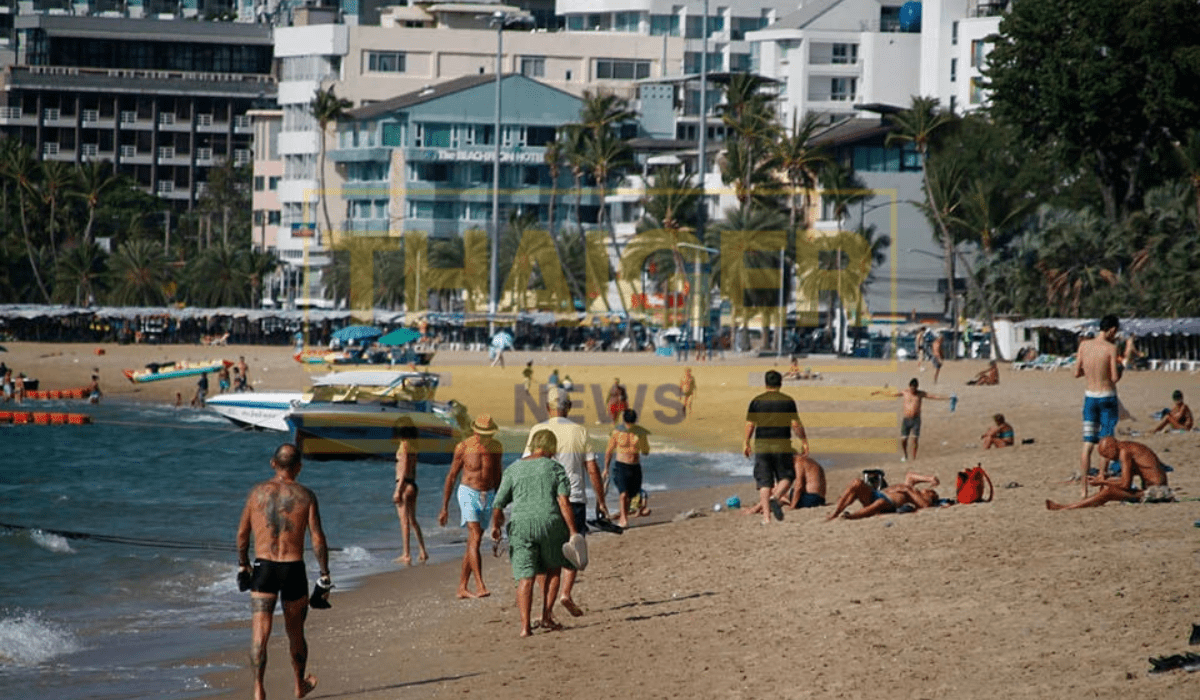
The tourism industry in Southern Thailand is undergoing a significant transformation, driven by an influx of European travelers who are propelling hotel performance to unprecedented heights. This article delves into the latest developments in Southern Thailand’s tourism sector, examining the factors contributing to the surge in European arrivals, its impact on hotel occupancy rates and pricing, and the broader implications for the region’s economy and tourism landscape.
European Tourists Fuel Tourism Boom in Southern Thailand
A recent report by the Bangkok Post highlights the growing presence of European tourists in Southern Thailand, particularly from Russia, Scandinavia, and Germany. These travelers are drawn to the region’s stunning natural landscapes, pristine beaches, and vibrant cultural attractions, making it a sought-after destination for leisure travelers seeking relaxation and adventure.
According to the report, hotels in popular tourist destinations such as Phang Nga and Krabi are experiencing a surge in occupancy rates, with some properties reaching a staggering 90% or higher. Pongsakorn Ketprapakorn, former president of the Phang Nga Tourism Council, attributes this spike in demand to the influx of European tourists, who are willing to pay premium rates for accommodations in the region.
Impact on Hotel Performance and Pricing
The influx of European travelers has had a profound impact on hotel performance and pricing in Southern Thailand. Hotels, particularly in Khao Lak and Krabi, have capitalized on this trend by commanding higher room rates, ranging from 6,000 to 10,000 baht per night. This represents a significant increase from the 2019 average of 5,000 baht per night, indicating the willingness of European tourists to spend more on luxury accommodations in the region.
Charintip Tiyaphorn, owner of Pimalai Resort and Spa in Koh Lanta, Krabi, highlights the robust demand for accommodations from European visitors, with many booking extended stays months in advance. This surge in demand has allowed hotels to increase their rates across all accommodation types, further driving revenue growth in the region.
Challenges and Opportunities
Despite the surge in European arrivals, Southern Thailand continues to face challenges in attracting Chinese tourists, who represent a significant market segment for the region. The lack of direct flights from China to destinations such as Krabi has hindered potential growth in Chinese arrivals, limiting the region’s ability to tap into this lucrative market.
Freelance travel agent Lek Nawat emphasizes the importance of established hubs like Bangkok, Pattaya, and Phuket for Chinese tourists, who often prioritize familiarity and convenience when choosing their travel destinations. Additionally, concerns about safety, food, and digital payment options have contributed to Chinese tourists’ preference for more well-known destinations, further complicating efforts to attract them to Southern Thailand.
Despite these challenges, the Thai government remains committed to promoting tourism in Southern Thailand and diversifying its visitor base. Efforts to improve infrastructure, expand air connectivity, and enhance marketing efforts are underway to attract a broader range of international travelers to the region.
Looking ahead, Southern Thailand’s tourism industry is poised for continued growth, fueled by the influx of European travelers and ongoing government initiatives to promote the region as a premier tourist destination. By leveraging its natural beauty, cultural heritage, and hospitality offerings, Southern Thailand is well-positioned to capitalize on the global tourism market and sustain its upward trajectory in the years to come.
The surge in European arrivals is reshaping Southern Thailand’s tourism landscape, driving hotel performance to new heights and fueling economic growth in the region. While challenges persist in attracting other key market segments, such as Chinese tourists, ongoing government initiatives and industry efforts are poised to position Southern Thailand as a leading tourist destination in the Asia-Pacific region. With its stunning landscapes, vibrant culture, and world-class hospitality, Southern Thailand is primed to capitalize on the global tourism boom and emerge as a top destination for travelers from around the world.
News
Pickup truck crash in Lampang kills one amid heavy rain
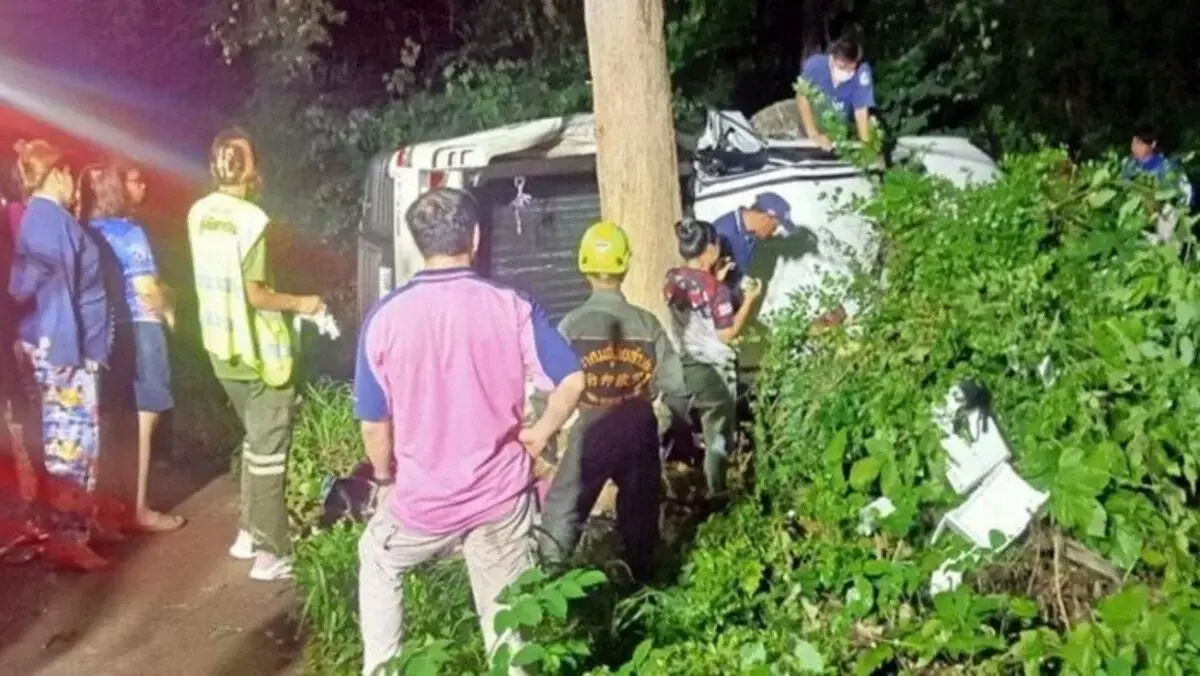
Due to heavy rain, a pickup truck returning from Chiang Mai skidded off the road and crashed into a tree in Thoen, Lampang.
Despite the efforts of rescue teams, a 50-year-old woman tragically lost her life.
The accident was reported to Thoen Police Station in Lampang at 6:50 PM yesterday, July 30.
The incident occurred on Phahonyothin Road, between kilometer markers 632 and 633, near the Mae Thot intersection in Thoen district.
Rescue units from Mae Thot, Lampang, Thoen, and Ombun Thoen were promptly dispatched to the scene.
Related News: Police arrest violent
Upon arrival, responders discovered a white, four-door Mazda pickup truck with a Surin registration overturned and severely damaged from colliding with a large roadside tree. Inside the vehicle, four injured individuals were trapped.
Rescue teams quickly extracted three injured and provided initial medical assistance before transferring them to a hospital.
However, a 50-year-old woman from the Na Pang subdistrict, Phu Phiang district, Nan province, who was seated in the back, sustained critical injuries and succumbed to them before she could be freed from the wreckage.
Initial investigations revealed that the group had traveled from Chiang Mai to Nakhon Pathom.
The accident occurred on a curved section of the road, worsened by wet and slippery conditions from the rain.
The vehicle lost control and crashed violently into the tree.
After extracting and treating the injured, the deceased’s body was transported to the hospital for further examination.
Police have launched a formal investigation into the accident. They are gathering evidence and statements from the injured to understand the exact circumstances leading to the crash.
The results of the investigation will guide necessary legal proceedings, reported KhaoSod.
Authorities advised.
“We urge all drivers to exercise extreme caution, especially in bad weather and on curved roads.”
News
Police arrest violent debt collector after tip-off in Bangkok

Police apprehended a member of a violent debt collection gang linked to the assault of a 73-year-old woman following a tip-off. He was caught while attempting to flee from a motel on the outskirts of Bangkok.
High-ranking police officials, including Thiti Sangsawang, Noppasin Poolsawat, and Thiradech Thamsuthee, along with a team of investigators, successfully arrested Kritchit, also known as 33-year-old Chit Thasala, from Nakhon Si Thammarat Province today, July 30.
He is one of the three members of the gang responsible for violent debt collection activities, including physical assault, intimidation, kicking doors, cutting off electricity, and locking debtors inside their homes.
The Min Buri Criminal Court issued an arrest warrant for Kritchit on July 23 for operating an unauthorized personal loan business, charging excessive interest, and threatening debt collection practices.
Related News: Thai vendor denies
He was apprehended at a hotel in the Saphan Sung district as he tried to escape in his car. During interrogation, Kritchit denied all charges, stating he had only completed Grade 9 and initially worked as a fruit farmer in Phuket’s Thalang District. In 2022, he sold his orchard land and used the proceeds to start a money-lending business.
He collaborated with two other suspects, Ta and Khet, who are still at large, to lend money in the Min Buri, Ram Inthra, Rom Klao, and On Nut areas.
They charged an interest rate of 20% daily, with borrowers typically taking out 5,000 to 6,000 baht loans. Kritchit claimed that Ta and Khet were responsible for using violence against the debtors on the day of the incident.
“I only worked with Ta and Khet to lend money. They were the ones who used violence.”
However, police remain skeptical of his testimony. Investigations revealed that Kritchit is romantically involved with the younger sister of Kenwit, another gang member who was previously arrested for assaulting the older woman.
Kenwit’s gang had attacked the 73-year-old in the Chokchai area. After receiving a tip-off, Kritchit fled to the hotel, where he was captured.
Police have transferred Kritchit to the Min Buri Police Station for further legal proceedings. His capture is a significant breakthrough in the ongoing crackdown against violent debt collection gangs operating in Bangkok and nearby areas.
As one of the lead investigators remarked, we are committed to cracking down on these illegal activities and ensuring the safety of our citizens.
Kritchit’s case will proceed through the legal system, and police are continuing their search for the remaining gang members, Ta and Khet. The investigation remains ongoing, with police hopeful that further arrests will follow, dismantling the entire network of violent debt collectors, reported Khaosod.
News
Thai vendor denies assault, cites stress from poor sales
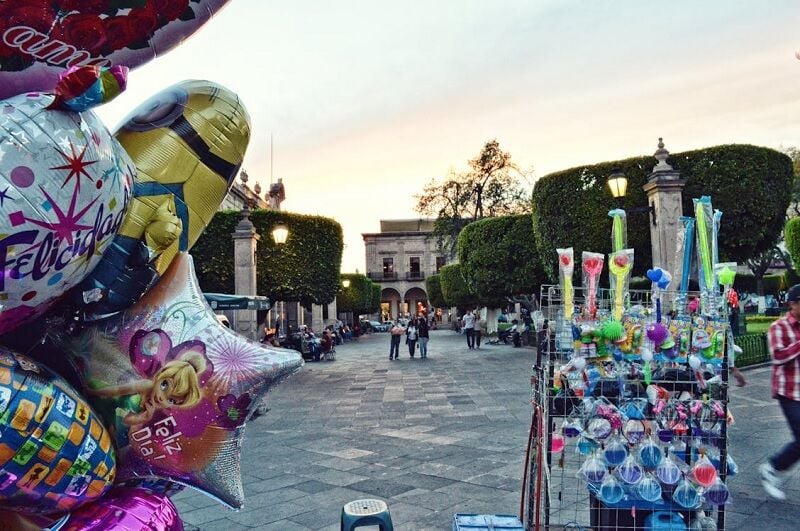
A Thai grilled squid vendor turned himself in and expressed remorse after allegedly striking a Pattaya city official who requested him to move his sidecar motorcycle from obstructing traffic.
The vendor, however, denied the physical assault, citing stress from poor sales as the trigger for the incident. He claimed their encounter was limited to a verbal disagreement and a shirt tug.
Pattaya police yesterday, July 29, invited Siwachett Nakham, a 42-year-old former temporary employee at the government’s Public Works Department and a current grilled squid vendor, to meet with an investigator to address the dispute.
Related News: Legend enjoys spring
The altercation involved Siwachett and a 40-year-old Pattaya city official, Udon Woranam, who had requested Siwachett to move his vehicle, blocking traffic near Jomtien Beach in front of the Dongtan Police Box. Siwachett was accused of punching Udon after the latter politely asked him to move his motorcycle. Siwachett, who acknowledged being the person in the video, denied the physical assault, maintaining that he only had a verbal confrontation with Udon and tugged his shirt.
He cited stress from poor sales and financial burdens as the reasons behind his behavior.
“I did not intend to harm Mr Udon because I had worked with the Public Works Department before, so I knew hitting an official was a bad idea.”
Siwachett apologized for his actions, and Udon said he did not wish to pursue the matter further. Despite this, Pattaya City insisted on taking legal action against the vendor to set a precedent and deter similar future incidents.
Selling goods
Additionally, Udon advised other vendors to remain calm, control their emotions, and adhere to the designated areas for selling their goods according to the law.
Following resolving this dispute, traffic police officers from Pattaya Police Station raided vendors illegally selling goods on public sidewalks and roads around Pattaya. This operation was in response to tourists’ complaints about obstructions and hazards caused by unorganized vendors.
When authorities arrived near Pattaya Police Station’s Dong Tan substation, they encountered heavy traffic congestion caused by street vendors parking on the road. Some vendors attempted to evade arrest by speeding through the officers’ blockade, putting the safety of officers and nearby individuals at risk.
Thai police managed to apprehend 12 vendors, who will now face legal proceedings for violating traffic and cleanliness laws. The police also announced plans to increase daily inspections in collaboration with municipal officials to restore public spaces for residents and tourists, reported the Pattaya News.
-

 News1 year ago
News1 year agoMICE industry must prioritise people management to sustain growth
-
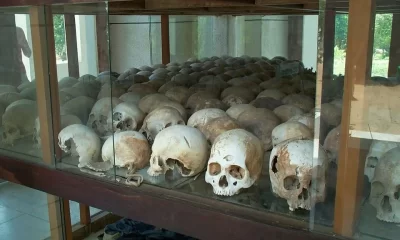
 Entertainment2 years ago
Entertainment2 years agoDark history to exotic delights: Cambodia and Thailand tourist strategy
-

 Entertainment2 years ago
Entertainment2 years agoJohn Legend enjoys spring break in Phuket
-
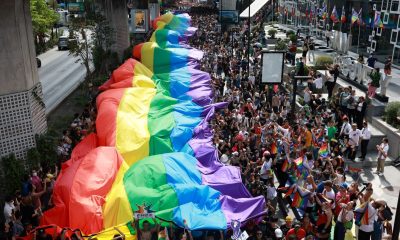
 Entertainment2 years ago
Entertainment2 years agoSiam Paragon and Bangkok Pride proudly celebrates Pride Month from May 31 – June 4, 2024
-
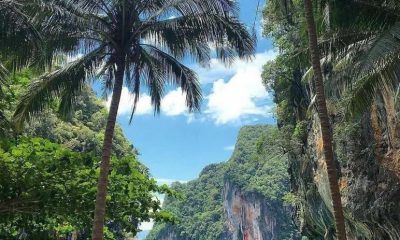
 Entertainment2 years ago
Entertainment2 years agoPhuket’s Tourist Case court division resumes after four-year break
-

 Fashion2 years ago
Fashion2 years agoGold prices in Thailand surge with ornaments at 37,350 baht
-
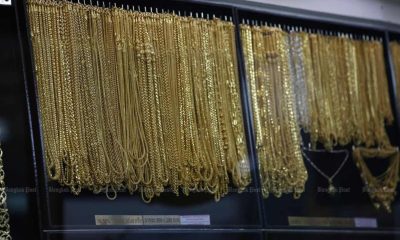
 Fashion2 years ago
Fashion2 years agoFed’s rate cut sends gold soaring past US$2,200 per ounce
-

 Fashion2 years ago
Fashion2 years agoFashion brands linked to brutal slaughter of reptiles in Thailand (video)




